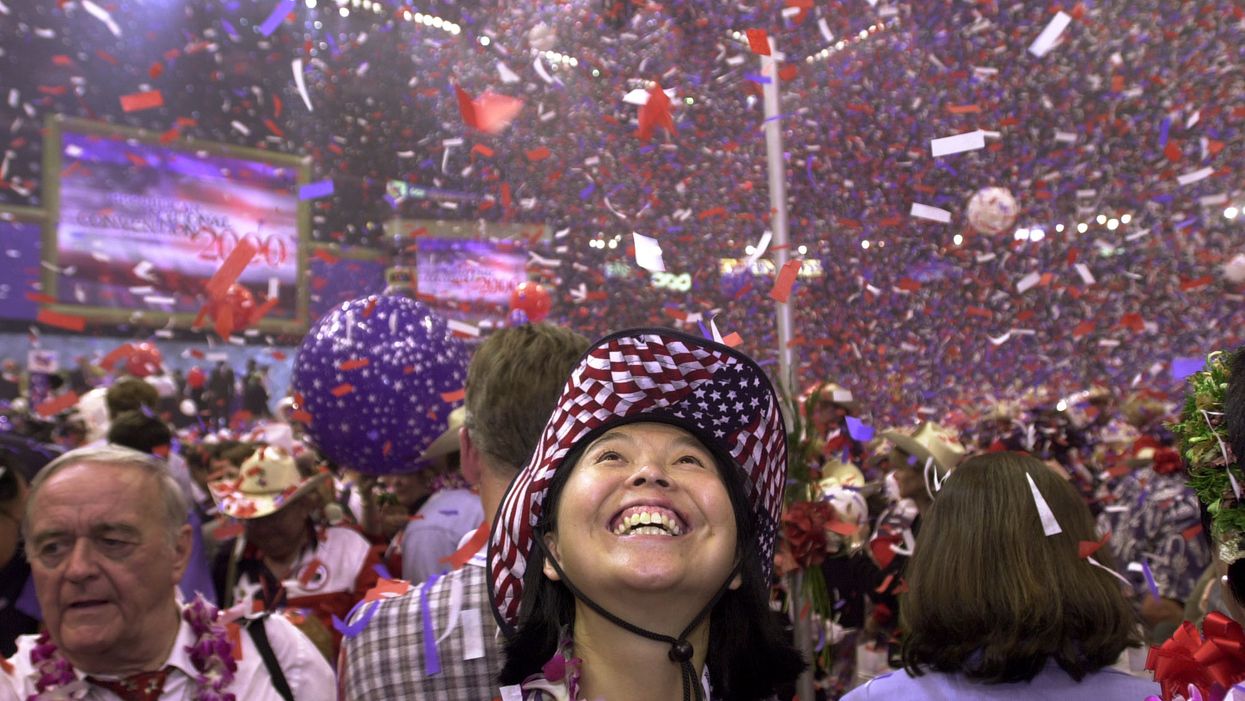What's one good way to fix dysfunction in American democracy? A centrist think tank has come up with a very counterintuitive answer:
Give the voters even less say over how their presidential candidates get nominated.
A white paper released this week by The New Center argues that the leaders of the political parties — not primary voters — should have the predominant voice in deciding which candidates best represent the ideals, norms and goals of the party.
Leaving the choice solely in the hands of primary voters, on the other hand, opens the possibility that "a single person can hijack, conquer, and reinvent an entire party image with far too much ease," the think tank concluded. "Like any other private brand, parties should be able to carefully manage their identities — and if voters no longer resonate with them, these Americans should launch their own political parties, movements, and groups."
The report was written by Laurin Schwab, a policy analyst for The New Center. The group was founded after the 2016 election by prominent centrist Democrat Bill Galston of the Brookings Institution and prominent centrist Republican Bill Kristol "to establish the intellectual basis for a viable political center in today's America."
The leaders of both parties had firm control over the nominating process until half a century ago, when the primary and caucus system we know today began taking hold and the candidates consistently turned out to be the people who did the best in those contests.
Republicans, though, continue to have rules giving party bosses muscle at a deadlocked convention. Democratic leaders started reasserting themselves in the 1980s with a system of superdelegates, elected and appointed officials not formally bound to any candidate at the conventions, but a backlash at their influence in 2016 prompted the party to severely limit their importance this year.
Ironically, the current nominating system that relies heavily on primary voters is strangely undemocratic because so few voters actually turnvout — so only a small minority of Americans ultimately decide which two people will have a realistic chance of getting elected president. In 2016, for instance, less than a third of eligible voters in America showed up during primary voting, the white paper notes, even though both the Democratic and Republican contests were highly competitive.
And efforts since the early 1970s to decrease the role of party leaders in deciding the best candidate has had "unintended consequences," which include opening the field to people who enter the race for attention but have little to no chance of winning, yet their presence encourages more political spending in the election while taking away airtime from legitimate candidates during debates.
"Easy access to the debate stage means candidates with no serious intentions can hack a free PR generator for epic personal gain," The New Center says. "There's a reason why little-known individuals run for president when they're confident they will lose: it pays."
Instead, it concludes, the parties "should be the ultimate bosses of their own events, proceedings, and brands, and they should feel empowered to boot out voices they admonish."
While the think tank advocates for empowering superdelegates in choosing party nominees, it also acknowledges the need for ensuring these power brokers fit neatly within the country's representative democracy.
"If the Democratic Party is to revive the superdelegates without peeving its anti-superdelegate camp, it should consider limiting superdelegate status to only those who are serving, or have served previously, in elected offices."




















